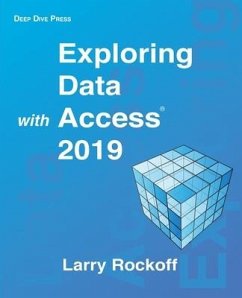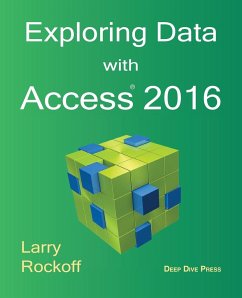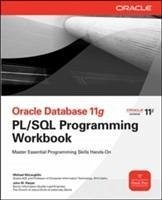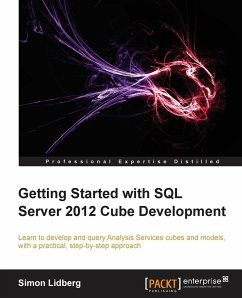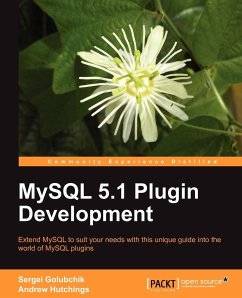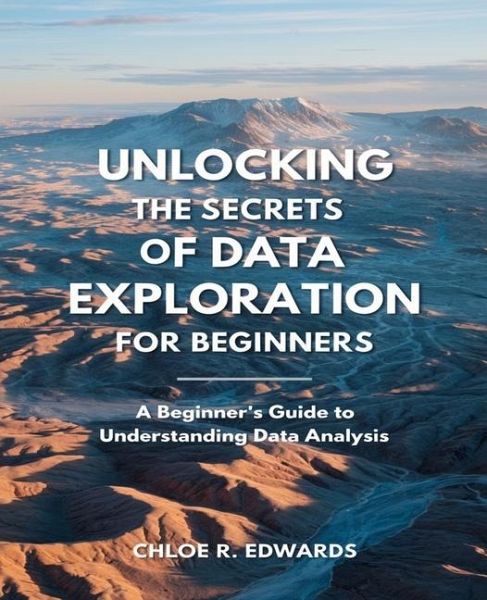
Unlocking the Secrets of Data Exploration for beginners
Comprehensive Insights into the Fundamentals of Data Mining and Analytical Metrics
Versandkostenfrei!
Nicht lieferbar
Diving into the world of data exploration feels a bit like embarking on an adventurous treasure hunt. At first glance, all you see are numbers and statistics, but as you dig deeper, you uncover valuable insights that can truly transform the way we understand the world around us. I remember my first experience with data mining; it was during a college project where I had to analyze survey results. The sheer volume of data was overwhelming, but as I started to sort through it, patterns began to emerge. It was like peeling back layers of an onion, revealing deeper insights with each layer I remov...
Diving into the world of data exploration feels a bit like embarking on an adventurous treasure hunt. At first glance, all you see are numbers and statistics, but as you dig deeper, you uncover valuable insights that can truly transform the way we understand the world around us. I remember my first experience with data mining; it was during a college project where I had to analyze survey results. The sheer volume of data was overwhelming, but as I started to sort through it, patterns began to emerge. It was like peeling back layers of an onion, revealing deeper insights with each layer I removed. Data mining is fundamentally about discovering patterns and extracting meaningful information from large sets of data. It involves various techniques such as clustering, classification, regression, and association rule learning. Each of these methods serves a unique purpose. For instance, clustering helps in grouping similar data points together, which can be incredibly useful in market segmentation. I once used clustering to segment customers based on purchasing behavior, and the results were eye-opening. It allowed my team to tailor marketing strategies that resonated more with specific groups, ultimately boosting our sales. On the other hand, classification is about predicting categorical labels. I recall working on a project where we had to predict whether a customer would churn based on their usage patterns. It was fascinating to see how machine learning algorithms could help us make these predictions with surprising accuracy. This experience taught me the importance of choosing the right analytical metrics. Metrics like accuracy, precision, and recall are crucial in evaluating how well our models perform. Moreover, I've learned that collaboration is key in the realm of data exploration. Working with peers who have different perspectives can lead to more comprehensive insights. During one group project, we used various software tools like Python and R for our analysis. These tools not only made data manipulation easier but also helped us visualize our findings in a more digestible format. I remember creating a dashboard that presented our results interactively, which was a game-changer for our presentation. However, it's essential to acknowledge the imperfections in data. Not all data is clean or reliable, and this is where real-time information comes into play. I once encountered a dataset riddled with missing values and outliers. It was frustrating at first, but it taught me the importance of data cleaning and preprocessing. Without these steps, our analyses could lead to misleading conclusions. In my opinion, the future of data exploration is incredibly promising. As technology continues to evolve, we have access to more sophisticated tools and methods. However, I believe that the human element-our ability to ask the right questions and think critically about the data-remains irreplaceable. Data may provide the answers, but it's our curiosity and creativity that unlock its true potential. In conclusion, data exploration is not just about crunching numbers; it's about storytelling. Every dataset has a narrative waiting to be discovered, and with the right techniques and collaboration, we can unveil insights that drive decision-making and innovation. So, whether you're a seasoned data analyst or just starting, remember that the journey of data exploration is as important as the destination.




